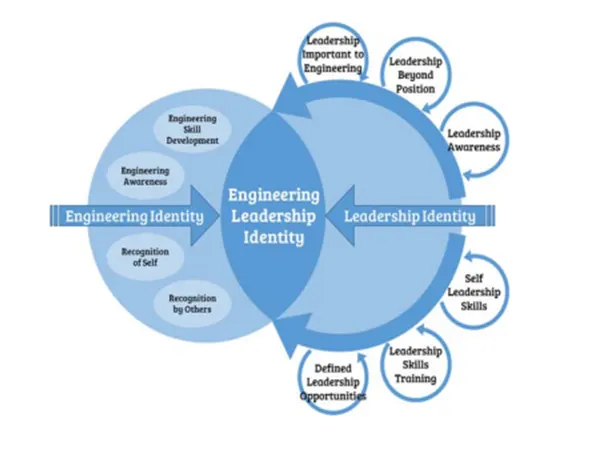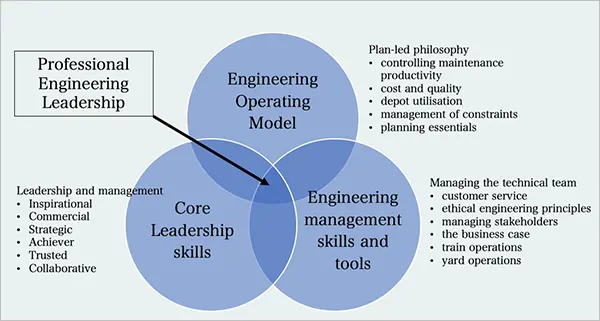
“Leaders need to understand the mechanics and incentives that resonate in business and policymaking environment,”

Academic Director of UBC’s Master of Engineering Leadership (MEL)
“Where do you see yourself, 5 years down the line.”
This is one of the most frequently asked questions in a job interview. Where an employer wants to measure the employee’s ambitions, professional interests, and most importantly leadership quality.
Management quality is an absolute necessity in the professional skill set, especially in the engineering industry. It helps to wrestle with the currency dynamic challenges such as climate change and shortage of skilled labor.
So, if you are an engineering professional who wants to rise to the corporate ladder. This read will walk you through the overview of leadership in engineering, its significance, and how you can seize authority.
Let’s Start!
Developing Technical Expertise
Continuous enhancement of technical expertise is fundamental for engineers aspiring to management roles in construction. Staying updated on building practices, materials, and methodologies helps them establish credibility and competence in leadership roles.
Also, according to Indeed, mastering safety procedures and personal protective equipment (PPE) is paramount. Acquiring knowledge of best safety practices ensures personal safety but also benefits the employer.
Moreover, proficiency in design skills is vital. Engineers should be adept at building codes and measurements, developing blueprints, and understanding environmental regulations.
Familiarity with safe worksite development and computer-aided drafting (CAD) further enhances their technical prowess. This continuous pursuit of technical excellence enhances individual career prospects and contributes to the overall success and safety of construction projects.
Did you know?
According to Zippia, 69% of the employees admit that they would work harder if their work is appreciated by the organizational leader. And 79% quits their jobs because of a lack of leadership.
Acquiring Project Management Proficiency
Project management proficiency is indispensable for engineers aiming for leadership roles in construction. Its mastery includes various skills such as scheduling, budgeting, risk handling, and conflict resolution.
This expertise is vital for effectively overseeing manufacturing projects. Builders must possess the ability to create and maintain comprehensive schedules.
Also, they must allocate resources efficiently and manage budgets to ensure the assignments are completed within scope, time, and budget constraints.
According to Kettering University, pursuing a Master’s in Engineering Management (MEM) is an excellent pathway to acquire and hone these experiences.
This advanced degree program provides a comprehensive understanding of engineering principles and managerial expertise. This prepares them for leadership positions in the construction sector.
An online master’s in engineering management offers flexibility and convenience. The course allows engineers to balance their studies with professional responsibilities.
Online programs often incorporate interactive learning platforms, collaborative projects, and access to industry-leading faculty, providing a rich and immersive educational experience.
In addition, online MEM programs often attract professionals from diverse backgrounds, building valuable networking opportunities and exposure to varied perspectives.

Learning Effective Communication Skills
Engineers must articulate ideas clearly, communicate expectations to team members, and promote open dialogue to ensure project success.
According to Forbes, several books offer valuable insights and techniques for improving communication within the workplace. “Leadership Is Language: The Hidden Power Of What You Say And What You Don’t” by L. David Marquet provides strategies for empowering teams through effective communication.
“How To Talk To Anyone At Work: 72 Little Tricks For Big Success Communicating On The Job” by Leil Lowndes offers practical tips for navigating workplace scenarios.
“Dare to Lead: Brave Work. Tough Conversations. Whole Hearts.” by Brené Brown emphasizes the importance of courage and vulnerability in leadership. The book encourages leaders to engage in difficult conversations and promote growth within their teams.
These resources equip engineers with the skills needed to excel in management roles within the construction industry.
Strategic Planning and Decision-Making
Leaders must possess the ability to formulate comprehensive strategic plans that align with organizational objectives and project requirements.
This involves setting clear goals, identifying key milestones, and establishing actionable strategies to drive the assignment’s progress and ensure successful outcomes.
Besides, captains must be adept at making informed decisions based on critical analysis of data, stakeholder input, and risk assessment. In building projects’ dynamic and complex environments, making timely and well-informed decisions is paramount to overcoming challenges.
By mastering strategic planning and decision-making skills, the construction head can navigate uncertainties and capitalize on opportunities.
Adaptability and Innovation
As the industry continually evolves with advancements in technology, materials, and methodologies, captains must embrace change rather than resist it.
This requires a willingness to explore new ideas, methods, and technologies that can enhance project efficiency, quality, and sustainability.
Promoting a culture of innovation within their teams can help the chief encourage creativity, problem-solving, and continuous improvement.
Moreover, leaders must be adaptable to shifting market demands, regulatory requirements, and client preferences.
Team Building and Collaboration

Cultivating a collaborative work environment involves building cohesive teams and building positive relationships with stakeholders, subcontractors, and clients.
By promoting a culture of teamwork and mutual respect, engineers can create an environment where team members feel valued and motivated.
Effective collaboration enhances communication, promotes idea-sharing, and facilitates problem-solving, leading to more efficient project outcomes.
Also, strong relationships with stakeholders and clients promote trust and transparency, facilitating smoother execution.
Leadership Guided by Ethics
In the construction industry, ethical management is indispensable for maintaining trust, integrity, and credibility.
Engineers in authority positions must prioritize ethical standards, leading by example to ensure that safety, quality, and compliance are paramount.
Upholding ethical practices involves adhering to industry regulations, standards, and codes of conduct, as well as promoting transparency and accountability.
Ethical leadership builds a positive work environment, enhances stakeholder relationships, and drives long-term success and sustainability in construction projects.

Final Thoughts
In conclusion, the building industry is a dynamic landscape, constantly evolving and demanding innovative solutions. Whereas technical expertise is indispensable, the true pillar of successful projects lies in effective leadership.
Engineers, equipped with their problem-solving expertise and critical thinking, possess unique potential to become leaders who shape the future of construction.
This guide has equipped you with the tools and strategies to unlock your management potential. We’ve explored ways to cultivate vital skills, demonstrate leadership on the job, and navigate career advancement through proactive engagement.